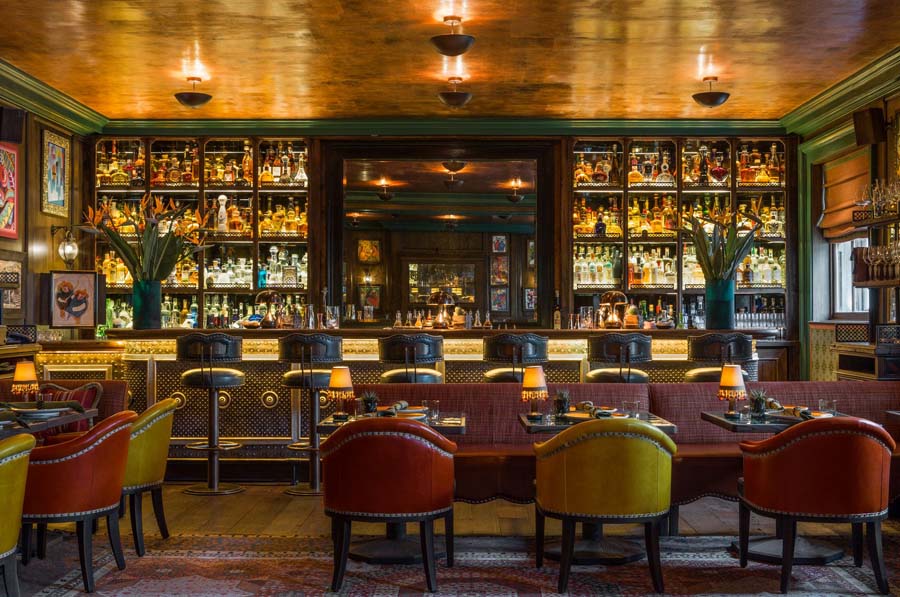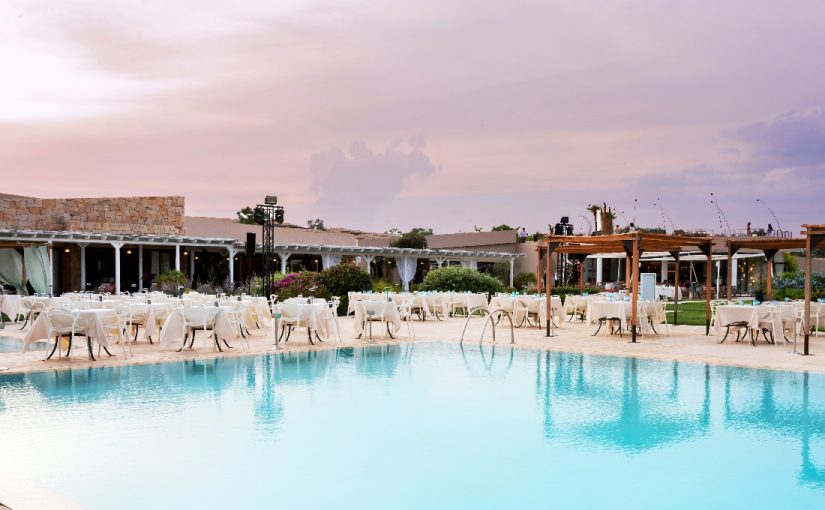Members’ clubs are a notable feature of the British society and their cultural impact through time cannot and should not be underestimated.
Members’ clubs, for all their mystique, are not known for being everyone’s cup of tea. ‘‘I just don’t get it,” I once heard an American gentleman say, raising a sceptical eyebrow. “If you are somebody, why then must you pay to get in anywhere? And that’s after months, if not years, of hanging around on a waiting list, just for the sake of what? To become a ‘member’ of what is basically a big, fancy restaurant?” I’ve definitely seen a good few members’ clubs that warrant that description–sumptuous restaurants, with hardly anything in common between their members, other than their bank balances. Notably, however, several establishments in London have maintained a reputation for excellence that has stood the test of time, spanning several generations. And while each of these prestigious haunts enjoys at least a few gourmet restaurants, their exclusivity and prestige are defined by a very different set of standards than mere presence of wealth. True, to become a member of these exclusive establishments – think Annabel’s, Loulou’s, The Arts Club, and perhaps more privileged still, the Travellers and Reform Club – one has to be deemed ‘eligible’. For prospective members, this means undergoing a rigorous, time-consuming process of assessment to confirm themselves as such. Necessary prerequisites may vary from one club to another, yet procedurally, one common denominator prevails- painstaking selectivity. Particular consideration is given to one’s contacts, as these will propose and second your application. Not least on the list of expectations are charm and intellectual substance- social qualities which one must possess in order to satisfy the membership committee. Once an application has been made, the candidate will most certainly be summoned for an interview, pending further approval. If one does successfully ‘tick all the right boxes’ and secures a membership, an entry fee will thereafter be charged, followed by a monthly fee, which may amount to several thousands of pounds. But London social life isn’t confined to one club only.
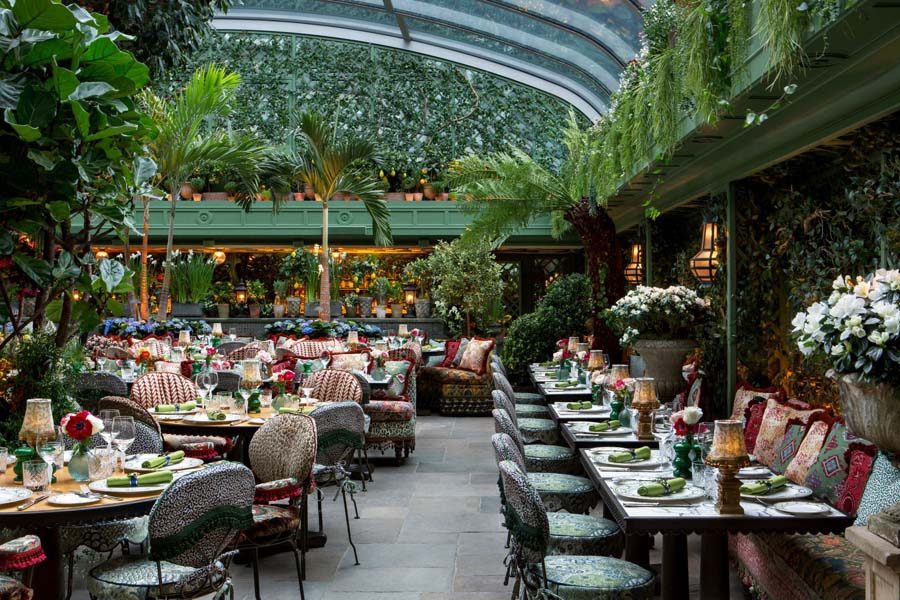
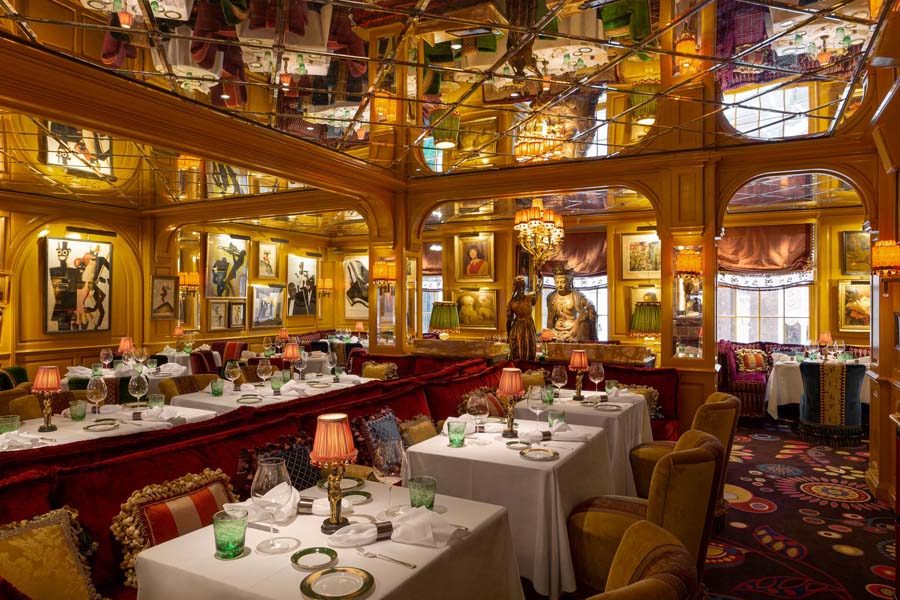 Annabel’s Club Photo courtesy of Annabel’s Club
Annabel’s Club Photo courtesy of Annabel’s Club
Multiple members I know would shuttle from one club to another for the duration of the night, treating themselves to a more palatable social experience. Very quickly, you may find yourself pursuing several memberships at once! All private members’ clubs possess in-house rules and codes of conduct, which have developed throughout their histories. Though we live in a social media age, most members’ clubs will sternly warn you against taking photos inside their venues, as such behaviour violates the privacy of other members. Dress codes are not to be dismissed, either. Famously, Bruce Willis was once turned away at the door of The Arts Club in Mayfair for wearing a tracksuit. Though bohemian Soho House tolerates ripped jeans and worn-in trainers, hosts at Loulou’s and Annabel’s will kindly remind their gentlemen guests to wear a blazer at all times, even if that means interrupting their night for a trip home to change into one. If these formalities seem demanding, you must consider whether members’ clubs are indeed the type of social experience you after. We are defined by what we do in life. And while some establishments have no specific regard to what that is, others most certainly do. A membership for highly sought-after Soho House is specifically subject to whether or not you belong to the ‘creative’ field of endeavour, for example. Rubbing shoulders with artists is exciting, of course: who wouldn’t want to count talent among their friends, and have their world touched by the muses? That ambience, however, is conditional on you being affiliated to art world in some way. Of course, definitions of art are subjective, yet one must demonstrate in no uncertain terms their belonging to an artistic niche. A patron of arts, for instance, is a very honourable artistic association. After all, who wouldn’t call Peggy Guggenheim an artist in her own right! Hint, hint…
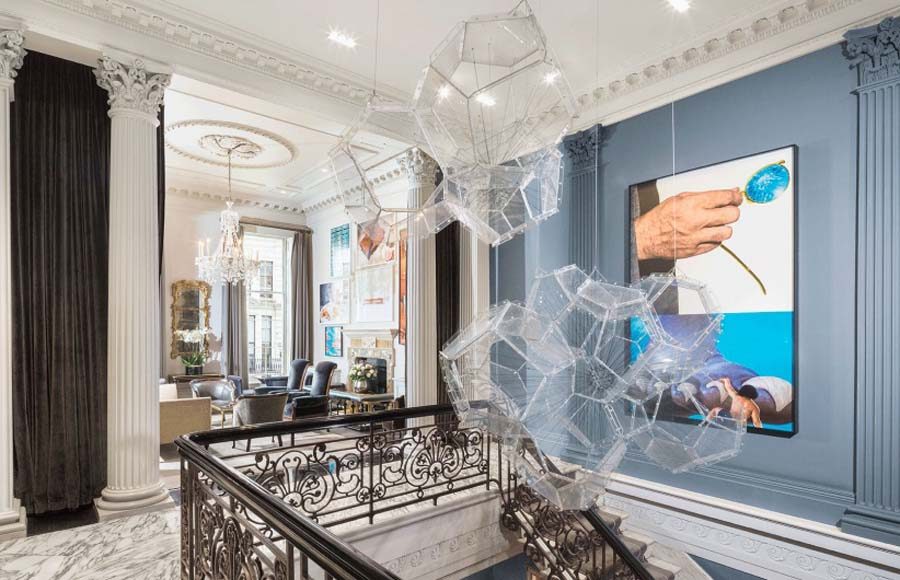 The Arts Club Photo courtesy of The Arts Club
The Arts Club Photo courtesy of The Arts Club
To be sure, there is beauty in inclusion; in free access to anyone willing to come through your door. Refusal can appear snobbish, dismissive, or downright elitist. Yet, I’ve come to understand that the idea of membership is not to divide people between those above and beneath the salt. Instead, a different logic applies. “Becoming a member means signing a contract,” says a friend who holds multiple memberships as we meet over lunch to discuss this very article. He smiles at me sagely: “You pledge yourself to belong to so and so, correct? Well, marriage is also a contract. But would you marry just anybody? Just so long as they are happy and willing? Exactly,” he says, reading my face, “a ridiculous idea”. Before marrying, certain questions must be asked and answers be given. Time and mutual understanding are necessary for that exclusive contract to be drawn up and for trust to exist between the parties. Similarly, principles of exclusivity in British members’ clubs may come across as elitist but, by the same token, isn’t every exclusive marriage guilty of the same unbearable snobbery? Of course, the analogy is personal and hardly seemed fitting before so eloquently pointed out to me. What is clear, however, is that members’ clubs are governed by their own logic, and are liable to be misunderstood- if one wishes to understand anything about them in the first place! But then much as marriage isn’t everyone’s cup of tea, exclusivity, perhaps, isn’t to everyone’s liking either. So, I must wonder- perhaps, the whole affair is as complicated as all that. Perhaps, it is just a simple matter of knowing one’s own taste.
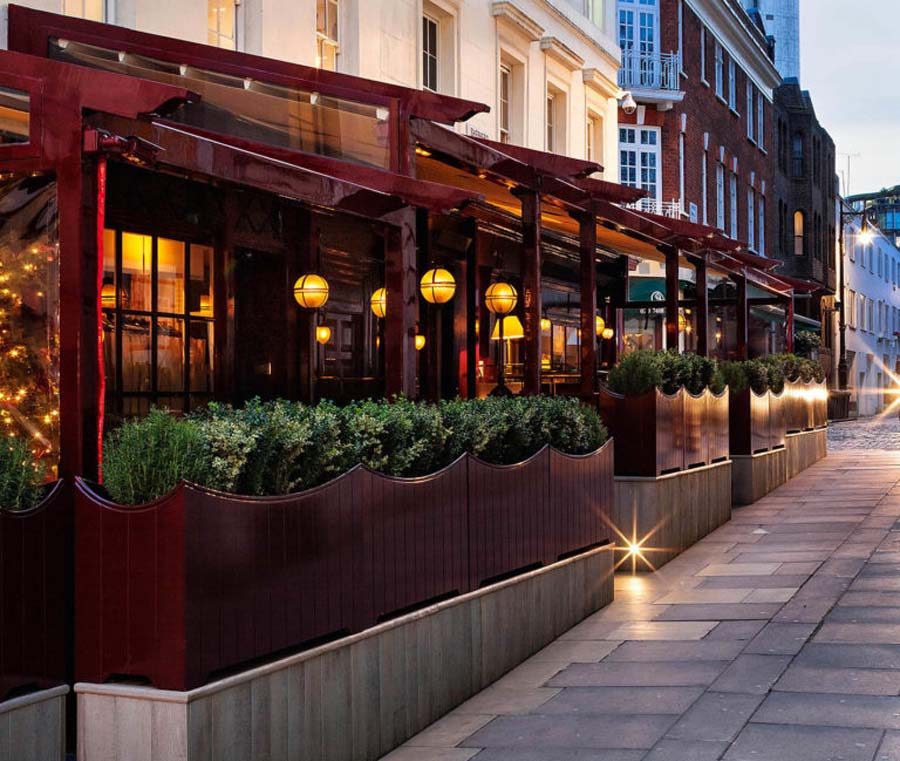
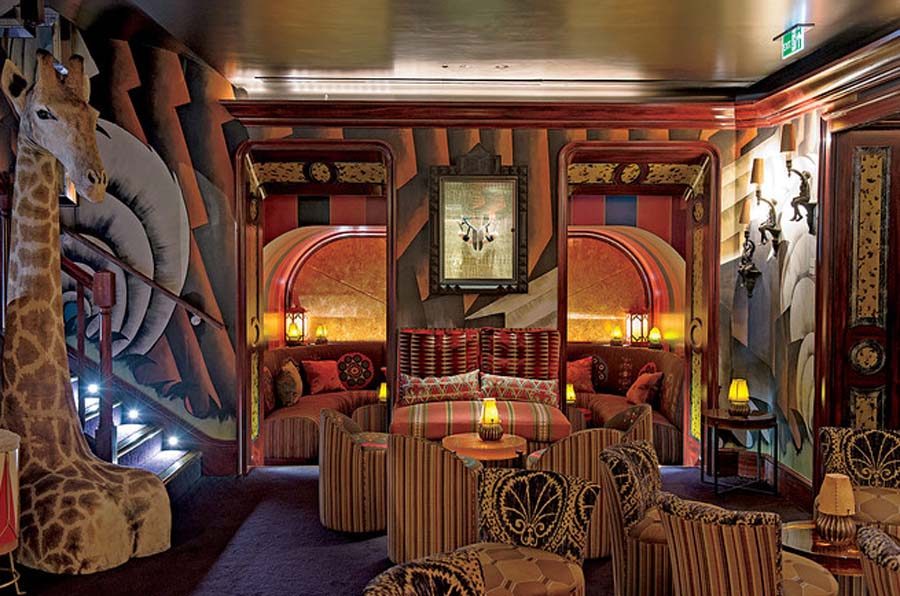 Loulou’s Club Photo courtesy of Jonathan Becker/Vanity Fair
Loulou’s Club Photo courtesy of Jonathan Becker/Vanity Fair
Членские клубы в британской культуре являются неотъемлемой частью ДНК страны, и их культурное влияние на протяжении всего времени нельзя и не следует недооценивать.
Известно, что частные клубы, при всей их мистике, не для всех. «Я просто не понимаю», – однажды услышалa я, как один американский джентльмен скептически приподнял бровь. «Если ты действительно личность, почему тогда тебе нужно платить, чтобы куда-то попасть? И это после месяцев, если не лет, ожидания в очереди, и ради чего? Чтобы cтать «членом» большого модного ресторана?» Я точно виделa несколько клубов, которые оправдывают такое описание – роскошные рестораны, не более. А их посетители – люди, у которых нет ничего общего, кроме солидных банковских счетов. Тем не менее, несколько заведений в Лондоне сохраняют отличную репутацию, выдержавшую испытание временем, охватывая несколько поколений знаменитых дам и джентльменов, которые их посещали. И хотя в каждом из этих престижных заведений есть несколько ресторанов для гурманов, их эксклюзивность и престиж определяются совсем иным набором стандартов, чем просто богатство. Конечно, чтобы стать членом эксклюзивных клубов, как, например, Annabel’s, Loulou’s, The Arts Club или еще более привилегированный Travellers and Reform Club, нужно считаться «подходящим». Для потенциальных членов это означает прохождение строгого и трудоемкого процесса оценки. Необходимые предпосылки могут варьироваться от одного критерия к другому, но с процедурной точки зрения преобладает один общий знаменатель – кропотливая избирательность. Особое внимание уделяется контактам, поскольку они предложат и поддержат вашу заявку. Не в последнюю очередь в этом списке ожиданий личное обаяние и интеллектуальность – элегантные качества, которые должны удовлетворить членский комитет. Как только заявка будет подана, кандидатa обязательно вызовут на собеседование, ожидая дальнейшего одобрения. Eсли жe кандидат успешно «отметит все нужные галочки», ему прeдстоит оплатить вступительный, a затем и ежемесячные взносы, которые в свою очередь могут достигать нескольких тысяч фунтов. Но общественная жизнь Лондона не ограничивается одним клубом.
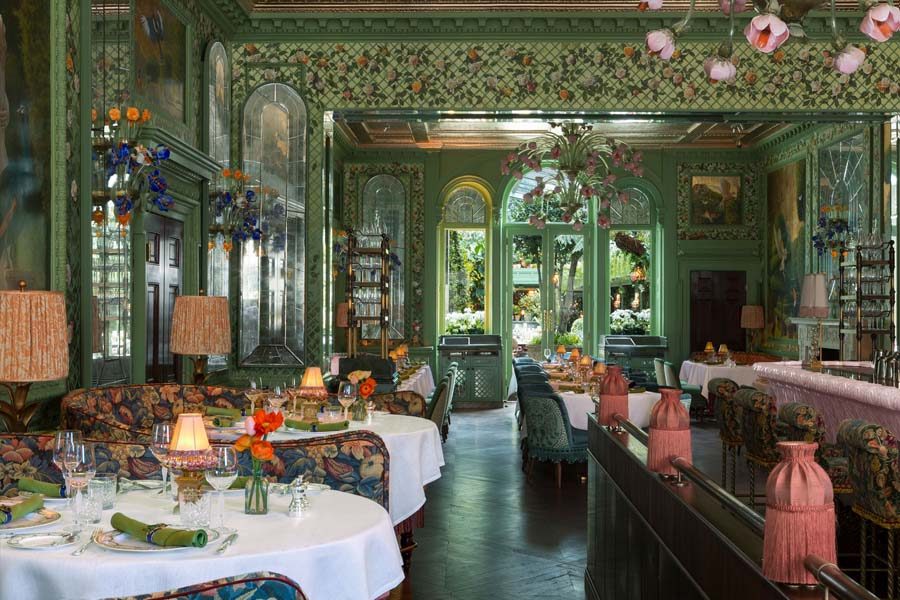
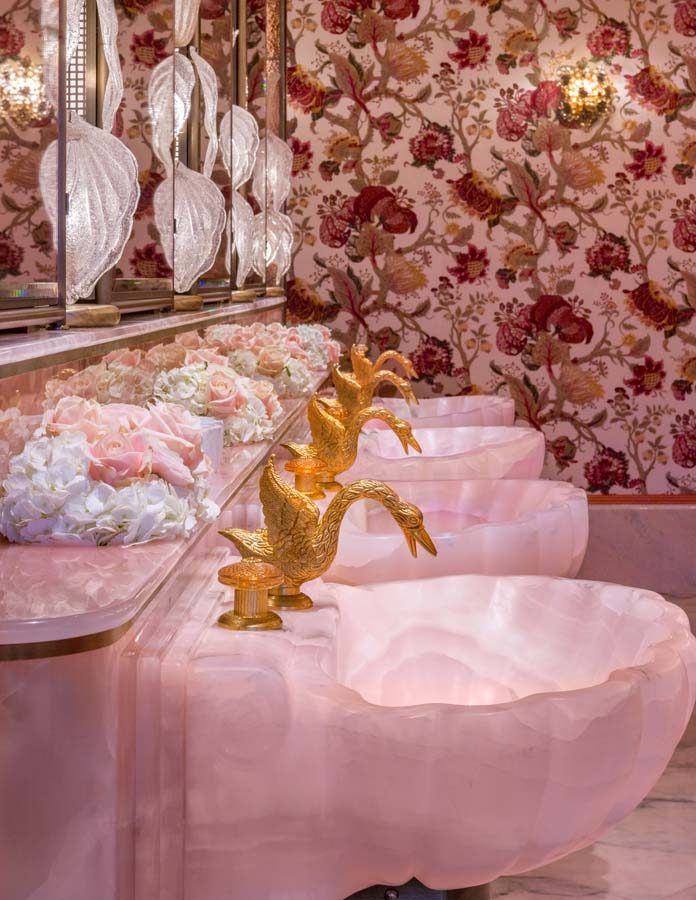 Annabel’s Club Photo courtesy of Annabel’s Club
Annabel’s Club Photo courtesy of Annabel’s Club
По личному опыту, многие люди, которых я знаю, курсируют из одного клуба в другой всю ночь, балуя себя разнообразием общения. Очень быстро вы можете оказаться в преследовании сразу нескольких членств в отдельных клубax. Все частные клубы имеют свoи правила и нормы поведения, которые развивались на протяжении их существования. Несмотря на то, что мы живем в эпохе социальных сетей, большинство клубов строго предостерегут вас от фотографирования внутри, поскольку такое поведение нарушает конфиденциальность других членов. Нельзя сбрасывать со счетов и дресс-код. Известно, что Брюса Уиллиса однажды отвергли у дверей Arts Club в Мэйфэр за то, что он пришел в спортивном костюме. Хотя богемный Soho House терпит джинсы и кроссовки, мэтры Loulou’s и Annabel’s любезно напомнят, что джентльменам следует носить блейзер, даже если для этого придется прервать их вечер для поездки домой, чтобы те переоделись. Если эти формальности кажутся сложными, Вы должны подумать, действительно ли членские клубы – Ваш тип развлечения. Нас определяет то, чем мы занимаемся в жизни. И хотя некоторые заведения не обращают особого внимания на сферy деятельности их членов, другие, безусловно, обращают. Например, членство в популярном Soho House зависит от того, принадлежите ли вы к «творческой» сфере деятельности. Общение с артистами – это увлекательно: кому не захочется иметь в своем обществе талантливых людей? Однако доступ к такой атмосфере зависит от вашей принадлежность к искусству. Конечно, определения искусства субъективны, если вообще существуют. Oднако вам так или иначе будет необходимо продемонстрировать причастие к художественной нише. Bот меценат, например, – очень почетнaя творческaя ассоциация. В конце концов, кто бы не назвал Пегги Гуггенхайм самостоятельной художницей! Тонкий намек…
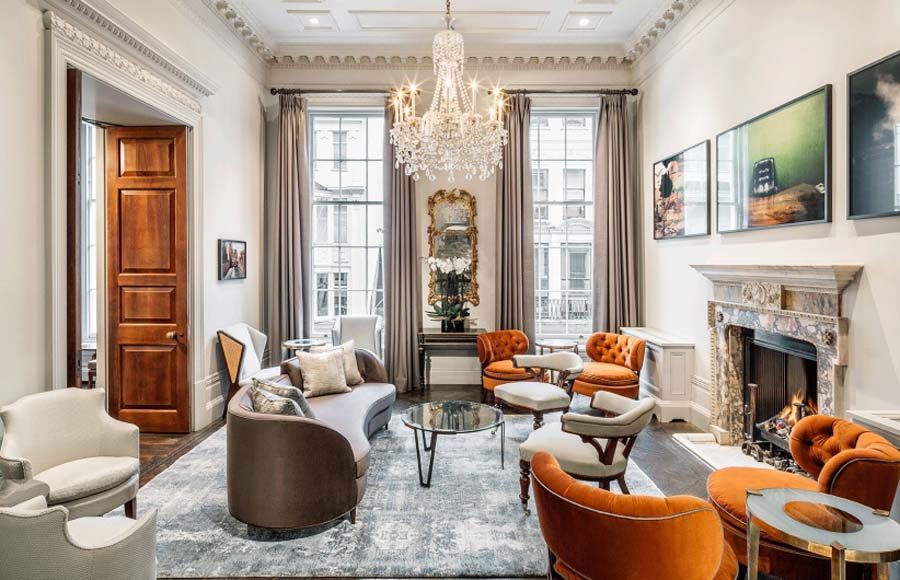 The Arts Club Photo courtesy of The Arts Club
The Arts Club Photo courtesy of The Arts Club
Безусловно, в демократичном, непредвзятом доступе есть своя красота. Отказ от открытия дверей может показаться снобистским, элитарным и пренебрежительным. Тем не менее, я пришлa к пониманию того, что членство существует не для разделения людей на «высших» и «низших». Здесь все-таки присутствует совсем иная логика. «Стать членом – значит подписать контракт, вернo?», – спрашивает один друг, у которого такиx членств несколько. За обедом, пока мы обсуждали эту статью, он мудро улыбнулся: «Ведь ты, ставя подписи, обязуешься принадлежать к данному учреждению, верно? Что ж, брак – это тоже договор. Но вопрос – выйдешь ли ты за первого встречного, который делает тебе предложение? Совершенно верно», – cмеется он в ответ на мою ухмылку, – «глупейшая затея!». Перед браком необходимо задать определенные вопросы, и ответы должны соответствовать. Время и взаимопонимание необходимы для заключения такого «эксклюзивного контракта» и для доверия между сторонами. Избирательность в британских частных клубах может казаться элитарной прихотью, но таким же образом – каждый официальный брак может считаться диким снобизмoм? Конечно, такaя аналогия носит личный характер и может показаться неуместной. Но я благодарна за красноречие моего друга в его пояснении. Очевидно, однако, что частные клубы руководствуются своей собственной логикой и могут быть неправильно поняты (если кто-то вообще хочет o ниx что-то понять). Но, как и брак, членство не для всеx. Эксклюзивность – это выбор, a не обязанность. Здесь я невольно задаюсь вопросом: возможно, все обстоит проще? Возможно, разгадка кроется в простом ненавязчивом осознании собственного вкуса?
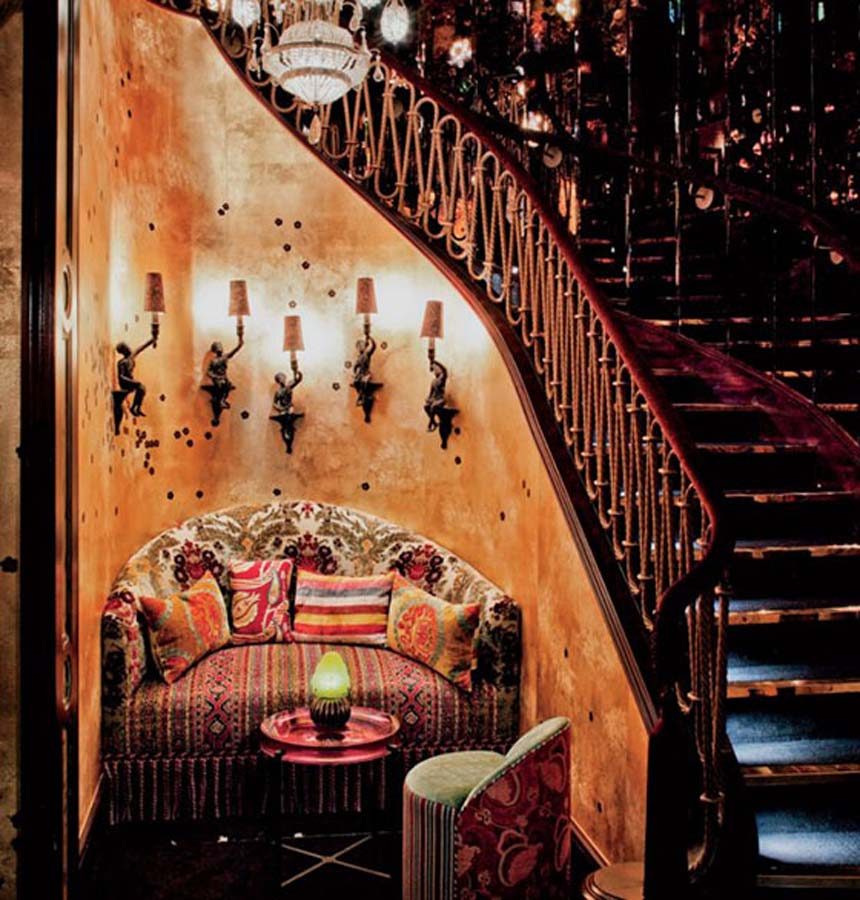
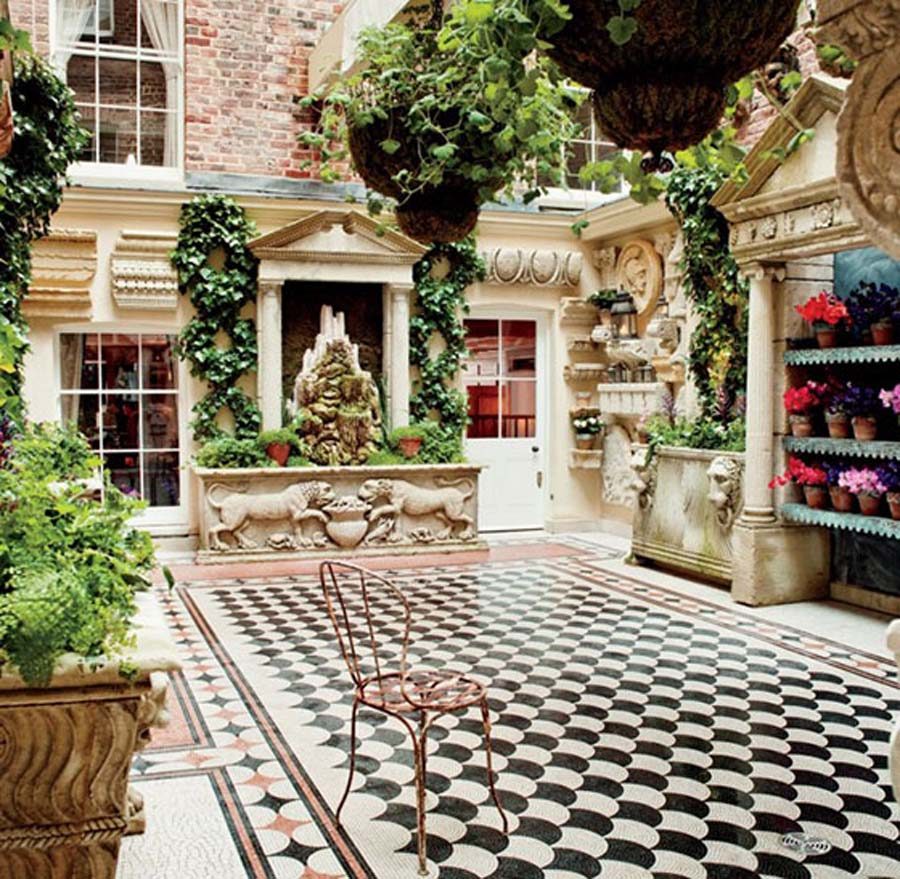 Loulou’s Club Photo courtesy of Jonathan Becker/Vanity Fair
Loulou’s Club Photo courtesy of Jonathan Becker/Vanity Fair


